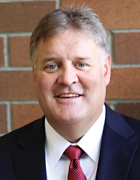
For years, many pharmacists serving the long-term care market have searched for a better medication dispensing model. And with health reform legislation now passed, this force of change is further prompting pharmacies to rethink the way they service this industry.
Fortunately, with the evolution of pharmacy automation technology—and mandates now for shortened cycle fills, pharmacists have real solutions available to them to modernize their prescription fill and delivery models. As we speak, many pharmacies are adopting these exciting and proven technologies to further help long-term care facilities meet their high resident safety and quality of care standards.
An exciting and proven technology
One such innovation is called remote dispensing. This technological advancement places a medication dispensing unit (about the size of a large refrigerator) on location at the long-term care facility, which allows for 24/7 access to medication. This sort of technology is being used today in long-term care facilities across the country, addressing many long-term care challenges that pharmacies have sought to help address for years. No other medication distribution model can offer quality of care and resident safety benefits like remote dispensing while also virtually eliminating medication waste and providing a foundation for down-to-the-dose accountability.
About remote dispensing
Remote dispensing is fundamentally different than traditional medication distribution systems being used in long-term care. With remote dispensing, medications, including controlled substances, are delivered by the pharmacies in bulk, in canisters that are placed inside of the remote dispensing unit. The machine lives in a secure location at the long-term care facility and is monitored remotely by the pharmacy. When medications are needed by residents, the technology automatically dispenses labeled, patient-specific, multi-dose packets immediately prior to administration.
The advantages of this new model
Widespread adoption of this new technology has the potential to save billions of dollars spent on medication waste over the next decade—and relieve common long-term care challenges, such as accessibility to medications. With remote dispensing, medications are available to nursing staff around the clock, enabling them to access medications for new residents, late admissions as well as address STAT orders. Because medications are dispensed on-demand, nurses no longer need to spend time at the beginning or end of their shifts doing narcotic counts. The new technology also frees up nurses to spend more quality time on the floor with their residents, directly impacting residents’ quality of care.
Benefits of remote dispensing at a glance
* Medications are on-hand and accessible to nurses 24/7.
* This technology allows nurses to spend more time with their residents.
* It provides, down to the dose, accountability for medications.
* Because medications are available on-demand, facilities are able to have higher acuity residents.
* Through automation and multi-dose packaging, there is less room for error.
* On-demand dispensing virtually eliminates medication waste.
* It better positions long-term care facilities to provide a safer environment for their residents.
As health legislation mandates new approaches for reducing waste in long-term care, pharmacies are exploring a number of possible solutions and their impact on facilities and residents. Many pharmacies are migrating to the remote dispensing model, happy about the benefits it can provide to long-term care facilities and residents. These include the virtual elimination of medication waste—as well as time savings nurses can leverage for positive impacts on residents’ quality of care. Because change is inevitable, the more long-term care facilities can understand the advantages of new models now, the more they can advocate for exciting and proven technologies, such as remote dispensing, which ultimately creates a more productive environment for staff and a safer environment for residents. Ask your pharmacy what they are doing about the legislation and tell them you want remote dispensing!
Dave Doane is vice president of Pharmacy Services for Talyst.




